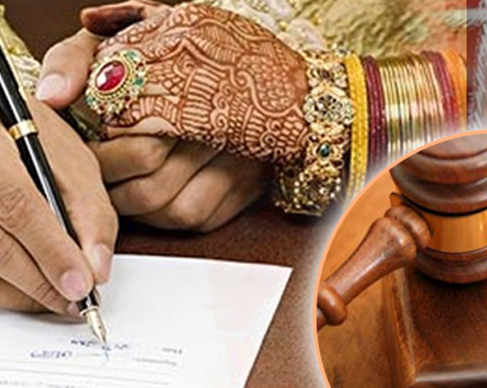
Court Marriage law is designed to ensure that individuals have the freedom to marry across religious, caste, or cultural boundaries, and it offers a more accessible and legally recognized marriage option. Key aspects of this law include:
Eligibility: Generally, the legal marriageable age is 18 for brides and 21 for grooms in India. The parties must not have a living spouse, and they should be mentally sound and capable of giving free consent.
Notice of Intention: The intending parties must provide notice of their intention to marry to the marriage officer in the specified district. This notice is published publicly to allow for objections, if any.
Objections: If there are no valid objections raised within the stipulated time, the marriage officer may proceed with solemnizing the marriage.
Solemnization: The court marriage ceremony is conducted in the presence of a marriage officer, three witnesses, and the parties involved. It is a secular and simple procedure that does not involve religious rituals.
Legal Certificate: After the marriage is solemnized, a marriage certificate is issued, which provides legal proof of the marriage and is essential for various legal purposes, including immigration, inheritance, and spousal benefits.